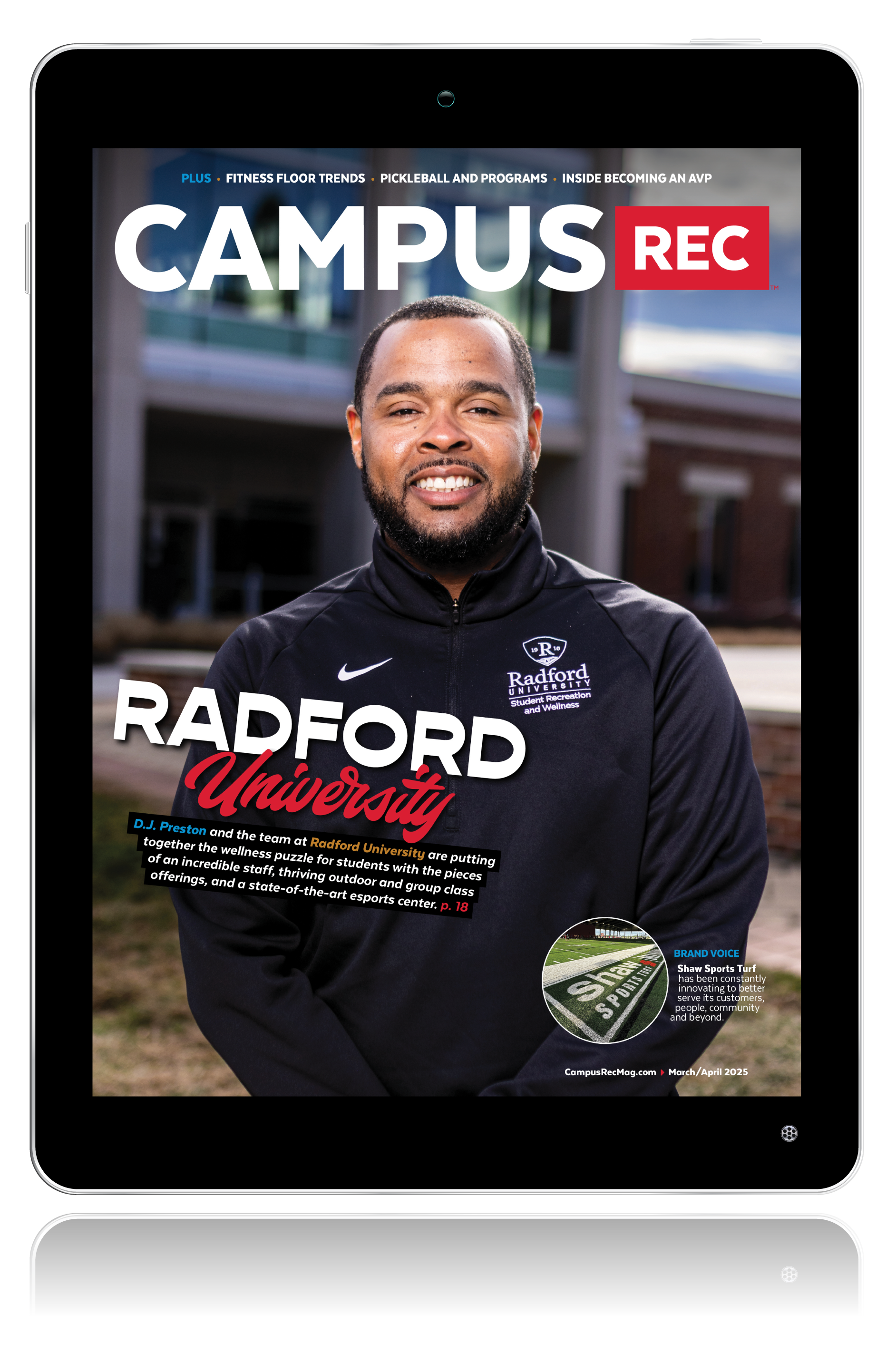A piece of cutting-edge technology called FarmBot is ushering in a new era of sustainability and healthy living at Cleveland State University’s (CSU) Rec Center. Located on the facility’s rooftop garden area, FarmBot lets users administer garden care via an app.
By utilizing the FarmBot app, movement commands can be accessed, users can see a crop in an instant, lights can be turned on for a nighttime harvest and plants can be watered with the touch of a button.
Katie Blodorn, the assistant director of Fitness and Wellness programming, said the technology ensures no water is wasted in guessing how much each herb needs.
“In addition to water usage, students are learning how to plant and care for a variety of herbs including cilantro, tomatoes, lavender, mint, thyme and more,” said Blodorn. “Once the crops are ready, the student committee will distribute them to our food pantry named Lift Up Vikes. Then they can be used for meal prepping and tea.”
Green Roof and FarmBot Features and Benefits
Blodron said the rooftop garden area has been utilized for yoga, meetings, eating lunch and lounging on a hammock. There are eight round picnic tables, a stand to hold three hammocks, a raised garden bed and four planters. “The door is unlocked during our open hours in the summer months,” she said. “Students, faculty and staff use it weekly to check on the plants, meet and enjoy one another’s company.”
The green roof, officially named the Huber-Westfall Garden, encompasses 7,000 square feet. The development extends the building’s roof life 40 years by protecting it from weathering. The insulating qualities can also save energy and lower heating and cooling costs. It reduces stormwater runoff, improves air quality and serves as a habitat for wildlife.
Blodorn first ordered the FarmBot for the garden with the recreation center’s budget and coordinated operations. She also keeps notes on who is volunteering, building and moving the project along.
The initial goal of adding the technology is for individuals to become aware and motivated to eat healthier. Also, CSU’s Shine Well program creates an ideal backdrop for the initiative. The FarmBot can be a tool for collaboration since it crosses disciplines like Engineering, Urban Planning, Student Life and more.
“Wellness is a journey,” said Blodorn. “Having an outdoor space that is easily accessible allows student to take a break from their busy schedules to relax, enjoy sunlight and socialize with one another.”
Other Sustainability Practices and Advice
When booking through CSU Dining, students will automatically receive compostable cups, plates and utensils at no extra charge. Blodorn said they collect compostable materials from events held in the Student Center. All food waste, cups, plates, utensils and napkins are placed in appropriate bins.
Organic waste is composted by Rust Belt Riders, a cooperative dedicated to climate resilience, food autonomy and workplace democracy. This initiative is a partnership between the Office of Sustainability, CSU Dining, Student Affairs, Departments of Facilities, Architect, Safety and Technology, and Conference Services.
Overall, Blodorn said when it comes to creating sustainable programs and strategies, seek out other campus partners first. “Instead of recreating the wheel, try to find what is in existence and use your power and team to make it better,” she said. “Not only does this help with campus partners and collaboration, but it saves everyone time where we can all be more efficient.”
Want more updates and information on how to make your campus rec department more sustainable? Sign up for a digital subscription here.










